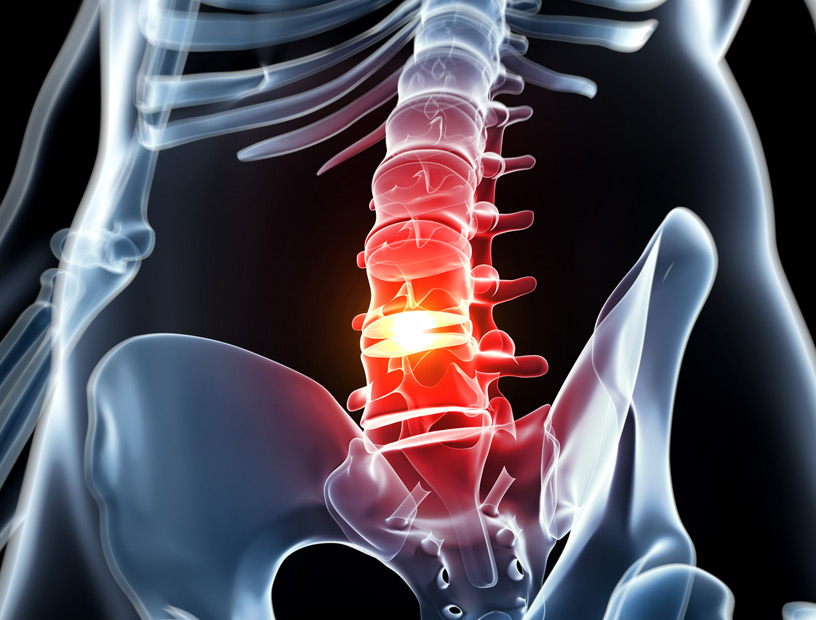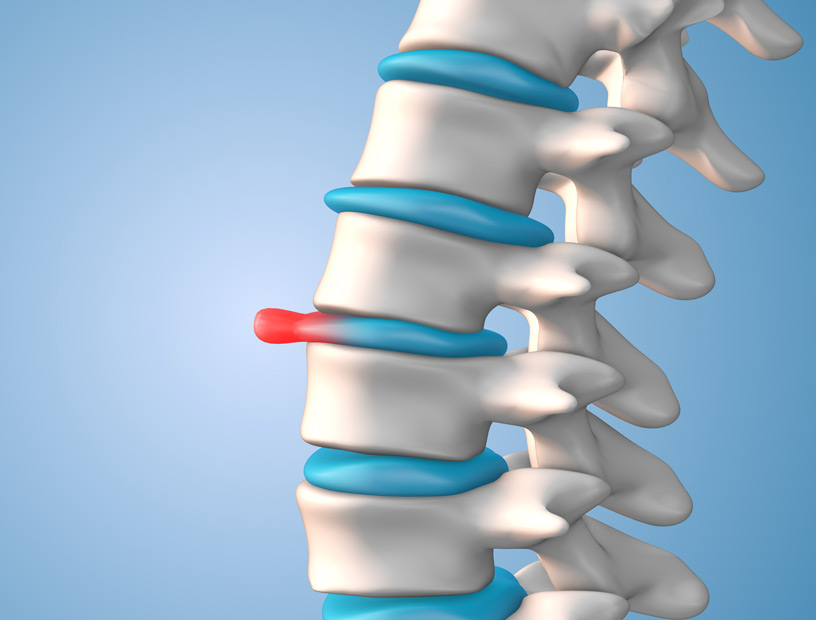
Learn more about how herniated discs can develop in your spine.
Herniated discs happen when one or more of the rubbery cushions between your vertebrae get pushed out of position or damaged. These discs consist of a soft center inside of a tough exterior. If some of the softer material pushes out through a crack in the tougher exterior, the material can push against the spinal cord. The vertebrae can also get too close together. The herniation can irritate the other smaller nerves in your back, resulting in pain. Herniated discs may be a hereditary condition, as this problem tends to run in families. Other risk factors include:
- Middle aged people
- People who do physically intensive work with a lot of lifting
- People who are overweight
Causes
In most cases, herniated discs develop gradually as a result of normal wear and tear. This wear and tear is referred to as disc degeneration. With aging, the discs lose some of the water, making them less flexible and easier to tear or rupture. Even a minor slip and fall could result in a disc rupture.
Most people cannot name a specific injury that caused their herniated disc. In some instances, improperly lifting a heavy object causes a herniation. A traumatic event such as getting hit hard with a blunt object on the back can cause one or more of the discs to herniate.
Symptoms

You could have a herniated disc in your spine without realizing it, but most people experience at least moderate pain. The most common location for a herniated disc is in the lumbar spine, or lower back. When a lower spinal disc is herniated, you may notice the pain spreading into your buttocks and down one or both legs. It may even spread into your foot. You might have trouble walking and your nerves and muscles may weaken.
The cervical spine, or bones in your neck, can also experience herniation. With a herniated cervical disc, you may notice numbness, tingling or weakness in your shoulders and arms. You might have a shooting pain when you cough, sneeze or move in certain ways. You might experience difficulty maintaining a grasp onto items and have a hard time lifting things.
Treatments
Most herniated discs respond to conservative orthopedic care. Your doctor may start with a pain reliever such as ibuprofen or prescription narcotic pain relievers such as codeine. Nerve pain medications to lower the nerve response may also be prescribed. If your symptoms include muscle spasms, you may be given a muscle relaxant.
Cortisone injections may help with relieving inflammation. Oral steroids are another option for suppressing inflammation. Ultrasound and electrical nerve stimulation therapy may also help to lessen your pain. Additionally, physical therapy can also help you to strengthen your spine and learn proper techniques for lifting.
About 10 percent of herniated discs require surgery. If you have severe weakness, bladder or bowel incontinence or worsening pain, surgery is an option. During the procedure, the protruding part of the disc is removed and spinal fusion may be performed.

on caring for specific orthopedic needs.
